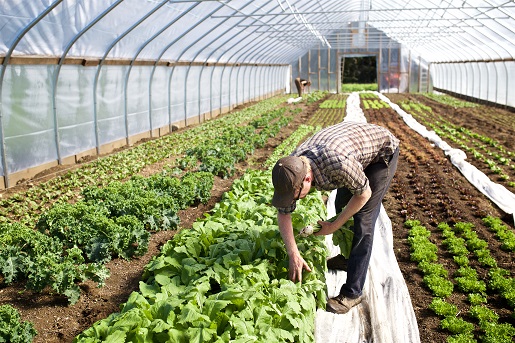
By Juana Lopez, VT Agency of Agriculture, Foods & Markets
As summer begins, people like to spend more time outside, enjoying the warmer weather, longer days, and sunshine. But as the temperatures outside keep rising, there are dangers to your body and health you should know. These risks can include heat-related illnesses. Individuals most at risk are those that mainly work outside, including but not limited to agricultural workers.
Heat Related illnesses are associated with high temperatures and humidity and the body's inability to withstand the heat load. There are different types of heat related illnesses that can be experienced, including: heat stroke, heat exhaustion, rhabdomyolysis, heat syncope, heat cramps, and heat rash.
Heat Stroke
According to the Centers for Disease Control and Prevention, heat stroke is the most serious heat-related illness. It occurs when the body can no longer control its temperature and the body temperature rises quickly. When heat strokes occur, in just a few minutes, the temperature of the body can rise, leading up to a permanent disability or death if emergency treatment is not given.
Symptoms of heat stroke
- Confusion
- Loss of consciousness
- Hot, dry skin
- Constantly sweating
- Seizures
- Very high body temperature
If you see that you or someone you know if having similar symptoms, please do the following:
- Call 911 to get medical help
- Stay with the person until emergency medical services arrive
- Give cold water or ice bath
- Place cold wet clothes on skin
Heat Exhaustion
Heat exhaustion is another condition to be weary of when working outdoors. The heat-related illness occurs when the body has lost extreme amounts of water and salts, especially if one is sweating a lot.
Symptoms of heat stroke
- Headache
- Nausea
- Dizziness
- Weakness
- Thirst
- Irritability
If you see that you or someone you know if having similar symptoms, please do the following:
- Take the person to an emergency room
- Call 911 if medical care is unavailable
- Remove from hot environment and give liquid to drink
- Remove unnecessary clothing, like socks and shoes
- Stay with them until medics arrive
It is important to remain proactive and precautious during the summer in order to reduce the risk of a heat-related illnesses. In order to do this, farmers should take enough breaks out of the sun, wear long sleeve shirts and a hat to provide shade for your skin, and drink lots of water to stay hydrated. A healthy farmer deserves to operate in a healthy environment.
You can also contact Farm First for any questions, information, or assistance in creating a plan that fits your needs when addressing a heat-related illness or other concerns.
- Call (802)-318-5538
- Farm First, a Vermont-based program tries to tackle these issues by providing farm owners with confidential and personal services that best suits their needs including but not limited to financial or family concerns, illness, depression, alcoholism, etc.
- https://www.farmfirst.org/
For more information on the other types of heat-related illnesses, please visit:
https://www.cdc.gov/niosh/topics/heatstress/heatrelillness.html
https://www.hopkinsmedicine.org/
https://my.clevelandclinic.org/health/diseases/16425-heat-illness

